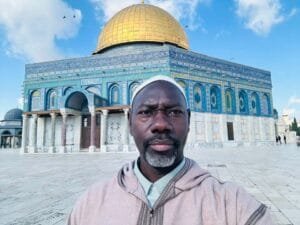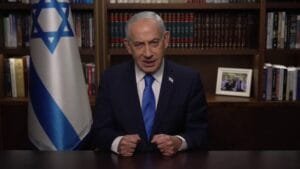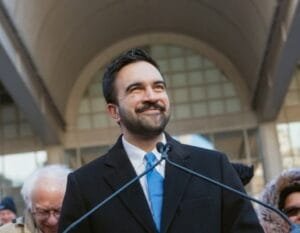UAE unveils bold strategy to dominate global islamic finance, halal trade
The UAE Cabinet has approved the comprehensive UAE Strategy for Islamic Finance and Halal Industry, a roadmap aimed at positioning the Emirates as a global hub for Islamic banking and Halal exports.

File Source: Google
In a landmark move set to transform the nation’s economic landscape, the UAE Cabinet has approved the comprehensive UAE Strategy for Islamic Finance and Halal Industry, a roadmap aimed at positioning the Emirates as a global hub for Islamic banking and Halal exports.

The Cabinet meeting, chaired by His Highness Sheikh Mohammed bin Rashid Al Maktoum, Vice President, Prime Minister of the UAE, and Ruler of Dubai, was held at Qasr Al Watan in Abu Dhabi and attended by top officials including H.H. Sheikh Mansour bin Zayed Al Nahyan and H.H. Sheikh Hamdan bin Mohammed bin Rashid Al Maktoum.
Announcing the strategy, Sheikh Mohammed stated, “I have chaired a Cabinet meeting at Qasr Al Watan in Abu Dhabi, during which we approved the UAE Strategy for Islamic Finance and Halal Industry. The goal is to develop the Islamic financial sector, lead global Islamic finance activities, and boost the export of Halal products worldwide.”
Aiming for exponential growth, the UAE targets increasing Islamic banking assets from AED986 billion to AED2.56 trillion within six years. Additionally, the strategy sets a goal to raise the value of listed Islamic sukuk to over AED660 billion by 2031. A committee led by the Central Bank governor will oversee the implementation of this ambitious plan.
“We aim to increase the assets of our Islamic banks from AED986 billion to AED2.56 trillion within six years and raise the value of listed Islamic sukuk in the UAE to over AED660 billion by 2031,” Sheikh Mohammed explained. “The UAE will continue to diversify and expand its national economy across all sectors.”
The meeting also spotlighted the UAE’s booming tourism sector. Reviewing 2024 results, Sheikh Mohammed noted the sector’s significant contributions: “The sector of tourism, travel, and hospitality in the country provided during the year 2023 over 800,000 jobs, and contributed 11.7 percent to the national economy, and it is expected to score more than AED236 billion in 2024. We have the necessary infrastructure, and our goal is to raise the sector’s contribution to AED450 billion over the next six years.”
The Cabinet also approved a second edition of the *National Biosecurity Framework (2023–2032)* to reinforce the country’s ability to manage biological risks and emergencies, with a strong focus on innovation and international collaboration. Sheikh Mohammed confirmed, “The Cabinet also approved, today, an updated national biosafety framework to enhance our national capabilities in prevention and response, increase research and innovation efforts, strengthen our biological emergency management system, and reinforce the UAE’s biosafety infrastructure.”
Small and Medium Enterprises (SMEs), a vital pillar of the UAE’s economy, were also under review. Sheikh Mohammed emphasized the sector’s progress and global recognition: “The UAE ranked first globally for the fourth consecutive year in the International Business Leadership Observatory report of 2024–2025 and 18th among the world’s top 100 in the Emerging Ecosystems Ranking in 2024. SMEs licences have grown by 160 percent. Our aim is to continue supporting and expanding this sector, providing the best environment for launching and sustaining small and emerging businesses.”
The Cabinet reviewed numerous strategic initiatives and reports across sectors. These included biofuel project updates aligning with the National Policy on Biofuels, preparations for the 2025 Hajj season, and the approval of the *Enjazaty* performance management system to enhance federal employee productivity.
In legislative matters, the Cabinet issued new regulations addressing visiting doctors, space activities, nuclear penalties, and public benefit organizations. Amendments were also made to the resolution on marriage grants.
The Cabinet reviewed AI integration by the Ministry of Human Resources and Emiratisation, featuring an AI-driven labour market simulation model and automated solutions for decision-making. Updates from federal entities such as the UAE Space Agency and the Federal Authority for Nuclear Regulation were also examined.
In digital and social domains, the UAE Council for Digital Wellbeing reported efforts to counter harmful online content, disrupt cyber threats, and block over 8 million phone numbers linked to dangerous products.
Further approvals included restructuring the UAE Gender Balance Council, chaired by H.H. Sheikha Manal bint Mohammed bin Rashid Al Maktoum, and the UAE Council for Environmental and Municipal Work. A special committee for chemical precursors, chaired by the Emirates Drug Establishment, was also formed.
The UAE ratified four international agreements focused on investment promotion with the Democratic Republic of Congo, Uzbekistan, Somalia, and the Philippines. Additional memorandums of understanding included economic and energy partnerships with countries like Azerbaijan, Mongolia, and Sri Lanka.
Internationally, the UAE is set to host eight major events, such as the Intergovernmental Oceanographic Commission (IOC) regional committee meeting, the World Customs Organization Technology Conference, and the International Operational Risk Working Group Conference.
With a sweeping set of approvals and strategies, the UAE continues to solidify its global leadership across finance, tourism, biosafety, technology, and sustainable development.














